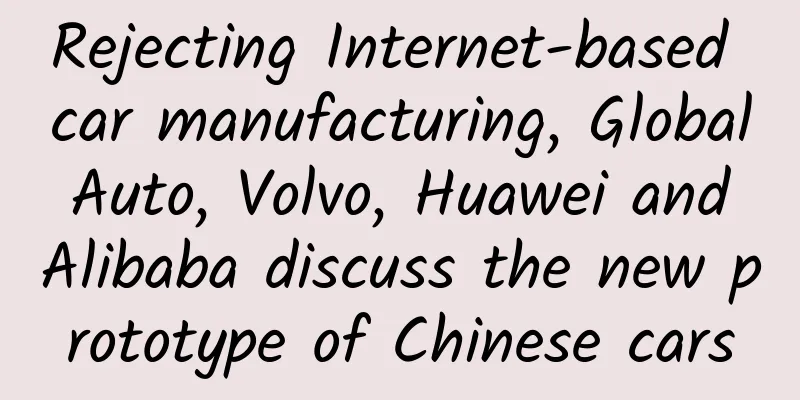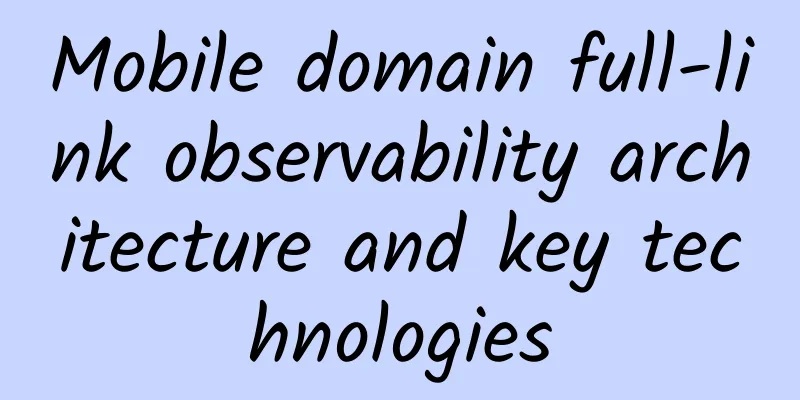Rejecting Internet-based car manufacturing, Global Auto, Volvo, Huawei and Alibaba discuss the new prototype of Chinese cars

|
Many people may not have thought that after many industries such as smart homes and smart wearable devices have been consumed by Internet companies that are good at talking on paper, a group of so-called "Internet elites" have copied their PPT skills to the traditional but extremely complex field of car manufacturing. However, although Internet car manufacturing is like an "ideal" "WeL Horse" aiming at the "future" and running towards the "singularity" of the "NIO" industrial revolution, many problems such as burning money like water, difficulty in mass production, and falsification of mileage have left people with an impression that these new car manufacturers are unreliable. So, what will the smart cars of the future look like? Can China's auto industry still seize the opportunities of the intelligent era and overtake others? On December 11, the "Open, Standard, and Safety - What Kind of Smart Car Do We Need in the Future" summit forum jointly hosted by Huanqiu Auto Group and Volvo Cars was held in Beijing. It was this smart car conference that lacked many Internet PPT elements, and the topics discussed by all parties sounded much more reliable. WinCE is a thing of the past, Android sets a new benchmark for smart car systems Different from the situation in the field of smart mobile devices where Google Android and Apple iOS are the two giants competing for supremacy, the in-vehicle operating systems have always been dominated by WinCE, Linux and BlackBerry QNX. Among them, the old and mature WinCE in-vehicle operating system can hardly meet the development needs of the current Internet of Vehicles. QNX is also limited by the high application-side adaptation cost. Although Linux, which has a larger development space, has a certain market recognition, the threshold that application software needs to be independently developed by manufacturers still makes many companies hesitate. At last year's Google I/O Developer Conference, global technology giant Google and Volvo Car Group announced their cooperation, which marked a major event in the history of smart car development. The two parties will jointly develop the next generation of automotive version of Android system - Android embedded. In Volvo's view, the reason for choosing Android operating system as the underlying operating system of the new generation of intelligent in-vehicle interactive system is that the Android system has an open and friendly ecosystem, covering a wide range of users, services and application developers. Development based on the standard version of the automotive Android operating system can quickly realize service updates and iterations. It is worth mentioning that Volvo Cars, through cooperating with Google to develop a standardized automotive version of the Android operating system, is more committed to improving the repeated design and adaptation of front-end software caused by different versions of the system in the past, solving a series of problems such as lag and insecurity in the traditional Android system, and making it compatible with different software to improve the efficiency of smart car updates and other product optimizations. The standard version of the car Android system enters China, building a new localized ecosystem It is understood that in global markets outside of China, Volvo Cars' next-generation intelligent in-car interactive system will directly introduce the complete Google ecosystem, including Google Voice Assistant, Google App Store, and Google Maps. However, for well-known reasons, in mainland China, as the first automobile company to use the standard version of the Android system, Volvo Cars chose to change its strategy and create a new smart car service ecosystem in an open manner together with Chinese localized partners in various fields. Wu Bin At the forum, Wu Bin, director of IOT Cloud Service of Huawei's CBG Cloud Service Department, said that in the cloud + AI era, people and cars can achieve closer connections. Huawei's solution is to serve car owners from two aspects: human-vehicle interaction through mobile phones, IOT devices and car computers, and in-vehicle infotainment technology. Qian Xue, vice president of Alibaba Group and general manager of Alibaba Artificial Intelligence Laboratory, also said that no matter whether the external or internal environment changes, or the consumers and people in the current era change, the trend of industrial transformation driven by future opportunities, technology, user orientation and an open mind will not change. At present, Volvo has cooperated with Alibaba Artificial Intelligence Laboratory and chose to integrate the Tmall Genie ecosystem into the car. In addition, as an important partner of Volvo's electrification strategy, Wei Dong, President of AutoNavi Map and AutoNavi Automotive Division, pointed out that in the future, smart cars will become essential tools and service products in life, just like smart phones. AutoNavi Map Car Edition will carry out high-end customization and adaptation development for Volvo's new infotainment platform, and contribute EHP algorithms for active safety. It will also provide navigation planning and other algorithms for optimizing the battery life of future Volvo electric vehicles. Yuan Xiaolin Yuan Xiaolin, global senior vice president of Volvo Car Group and president and CEO of Asia Pacific, said that AutoNavi Maps and Alibaba AI lab are Volvo Cars' first round of smart car partners in the Chinese market. In the future, Volvo Cars will seek more partners based on the standard version of the car Android system. The goal is to always choose the best partners in China and bring the best service and experience to Chinese consumers. Wu Yingqiu Wu Yingqiu, Chairman and CEO of Huanqiu Automotive Group, said that the intelligentization of automobiles includes many aspects, which are reflected in energy, power, driving mode, active and passive safety systems, and human-machine interaction. The intelligentization of automobiles should not only be a technical issue, but also a question of how to provide a better experience for car drivers and passengers. As a winner of Toutiao's Qingyun Plan and Baijiahao's Bai+ Plan, the 2019 Baidu Digital Author of the Year, the Baijiahao's Most Popular Author in the Technology Field, the 2019 Sogou Technology and Culture Author, and the 2021 Baijiahao Quarterly Influential Creator, he has won many awards, including the 2013 Sohu Best Industry Media Person, the 2015 China New Media Entrepreneurship Competition Beijing Third Place, the 2015 Guangmang Experience Award, the 2015 China New Media Entrepreneurship Competition Finals Third Place, and the 2018 Baidu Dynamic Annual Powerful Celebrity. |
Recommend
4 major mainstream platform information flow optimization cases, this wave of dry goods is very timely~
For information flow advertising , the content an...
Having seen the "super moon", do you want to see the "mini super moon"?
Poster production: Feng Juan On December 19, the ...
Nanjing takeaway private studio, I don't want to leave after coming here
Nanjing tea delivery private studio arrangement: ...
How to scientifically improve conversion rate and click-through rate?
When it comes to Internet advertising , everyone ...
Apple releases iOS 9.3.6 and iOS 10.3.4 updates for retired devices
Apple has quietly released some updates for earli...
Be careful when taking a bath in cold weather! The bathroom heater may turn into a "destroyer"
Take a hot bath in cold weather It is undoubtedly...
Wu Yizhong, Vice President of 31 Conference: The Secrets of Community Operation and Monetization You Don’t Know (with PPT Download)
Xiaomi has built a company with a valuation of US...
I heard you started growing vegetables? Here are some vegetables I recommend...
What are you doing at home during this lockdown? ...
Good news from the "Struggler"!
On March 11, the "Exploration One" rese...
How to play with information flow advertising? Improving CTR is the key to gaining exposure
As an important part of native advertising, infor...
APP operation: 4 ways to implement growth hacking!
Operation is an art and even more a technology. I...
An inventory of common online platform promotions!
Before starting online promotion , you need to un...
Android official IDE has been upgraded to fully support C/C++
Google has revealed the next version of Android S...
Revelation of JD.com’s 618 marketing promotion!
Whenever "618" comes, consumers find it...









